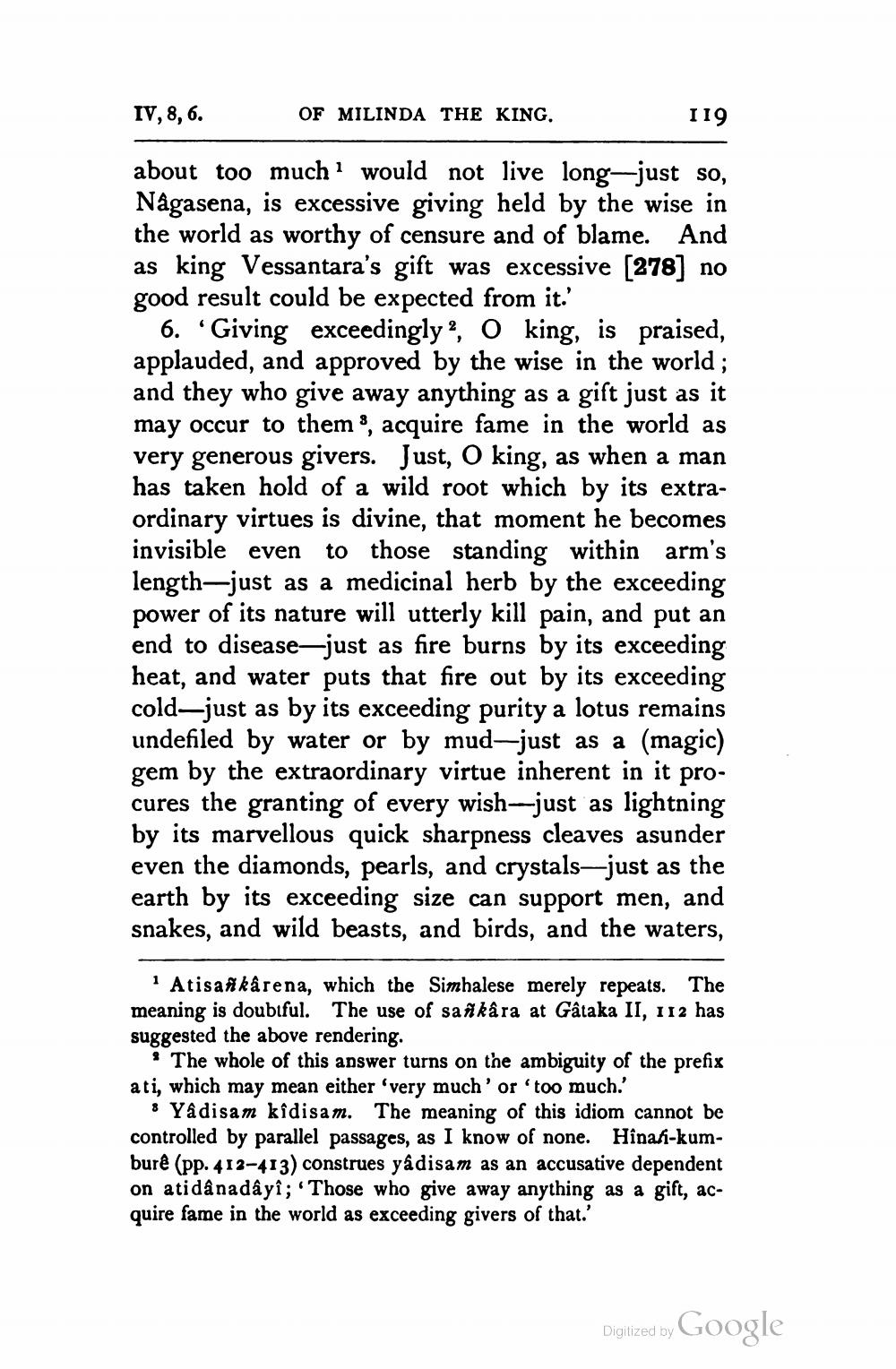________________
IV, 8, 6.
OF MILINDA THE KING.
119
about too much? would not live long—just so, Någasena, is excessive giving held by the wise in the world as worthy of censure and of blame. And as king Vessantara's gift was excessive [278] no good result could be expected from it.'
6. Giving exceedingly?, O king, is praised, applauded, and approved by the wise in the world; and they who give away anything as a gift just as it may occur to them, acquire fame in the world as very generous givers. Just, О king, as when a man has taken hold of a wild root which by its extraordinary virtues is divine, that moment he becomes invisible even to those standing within arm's length—just as a medicinal herb by the exceeding power of its nature will utterly kill pain, and put an end to disease-just as fire burns by its exceeding heat, and water puts that fire out by its exceeding cold—just as by its exceeding purity a lotus remains undefiled by water or by mud—just as a (magic) gem by the extraordinary virtue inherent in it procures the granting of every wish-just as lightning by its marvellous quick sharpness cleaves asunder even the diamonds, pearls, and crystals—just as the earth by its exceeding size can support men, and snakes, and wild beasts, and birds, and the waters,
1 Atisa karena, which the Simhalese merely repeats. The meaning is doubtful. The use of sailkâra at Gâtaka II, II2 has suggested the above rendering.
. The whole of this answer turns on the ambiguity of the prefix ati, which may mean either 'very much' or 'too much.'
& Ya disam kidisam. The meaning of this idiom cannot be controlled by parallel passages, as I know of none. Hînafi-kumburê (pp. 413-413) construes yâdisam as an accusative dependent on atida nadâyî; 'Those who give away anything as a gift, acquire fame in the world as exceeding givers of that.'
Digitized by Google




